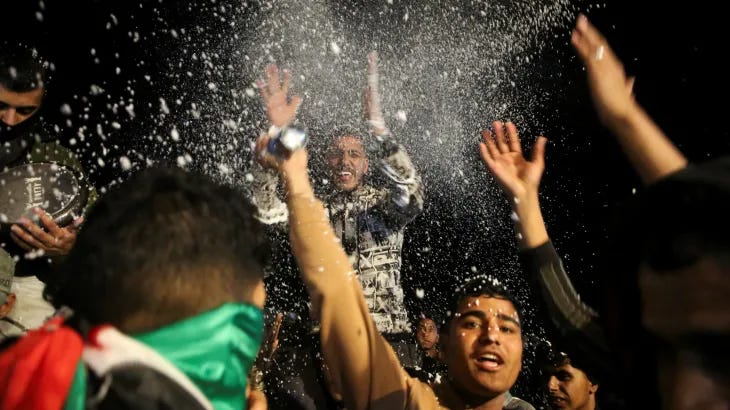World Reacts to Israel-Hamas Ceasefire Agreement in Gaza
Global Leaders Urge Humanitarian Aid and Commitment to Peace
Qatar has brokered a deal between Israel and Hamas to bring an end to the conflict in Gaza, announcing a ceasefire agreement that will also include the exchange of captives. The announcement, made by Qatar’s Prime Minister Sheikh Mohammed bin Abdulrahman Al Thani on Wednesday in Doha, confirmed that the ceasefire will go into effect on Sunday, January 19, 2025. The agreement is expected to result in the release of both Israeli captives and Palestinian prisoners held in Israel, alongside an influx of humanitarian aid to Gaza.
The war, which has already claimed the lives of at least 46,707 Palestinians, began after a Hamas-led attack on Israel on October 7, 2023, that killed over 1,100 people and resulted in approximately 250 Israelis being taken hostage. The announcement of the truce has been met with cautious optimism from leaders around the world, with calls for swift and effective implementation.
Global Reactions
US President Joe Biden expressed his support for the ceasefire, stating that it would bring relief to both the hostages and their families, while offering Palestinians a "credible pathway to a state of their own" and a future of regional peace. Biden also spoke of integrating Israel with its Arab neighbors, including Saudi Arabia.
Former US President Donald Trump took to social media to confirm the deal and thanked those involved in facilitating the hostages’ release, while stressing that his National Security team would ensure Gaza never again becomes a terrorist stronghold.
United Nations Secretary-General Antonio Guterres welcomed the deal, emphasizing the UN's readiness to assist with scaling up humanitarian aid to Palestinians in Gaza. Turkish Foreign Minister Hakan Fidan echoed this sentiment, describing the ceasefire as a key step for regional stability.
Qatar’s Prime Minister Sheikh Mohammed stressed that while the deal marked significant progress, continued efforts would be needed to ensure peace and fully implement the terms of the agreement.
Egyptian President Abdel Fattah el-Sisi also praised the ceasefire, emphasizing the urgency of delivering humanitarian aid to Gaza. Meanwhile, Iran’s parliamentary speaker, Mohammad Bagher Ghalibaf, framed the ceasefire as a victory for Palestinian resistance, calling for global accountability against Israel.
Countries such as Saudi Arabia, the United Arab Emirates, Pakistan, and South Africa have urged continued international support for Palestinian rights and the need for a just and lasting peace. The European Union’s Ursula von der Leyen expressed hope that the agreement would bring an end to the violence and provide a path toward lasting stability. Belgian and German officials, along with the UK’s Prime Minister Keir Starmer, also welcomed the deal, focusing on its potential to end the bloodshed and reunite families.
In contrast, Australia's Prime Minister Anthony Albanese emphasized the necessity of rebuilding Palestinian institutions and ensuring that Hamas would not play a role in Gaza's future governance.
Mirjana Spoljaric, President of the International Committee of the Red Cross, reminded the global community that while the ceasefire is a welcome development, civilian protection and the fulfillment of humanitarian needs must remain a priority.
Hope Amidst the Tragedy
As the world reacts to this announcement, the tragic loss of life in Gaza continues to weigh heavily on international discussions. While many see the ceasefire as a beacon of hope, the path ahead remains fraught with challenges. The international community’s continued commitment to peace, human rights, and humanitarian relief will be crucial in shaping the region's future.
4o mini


